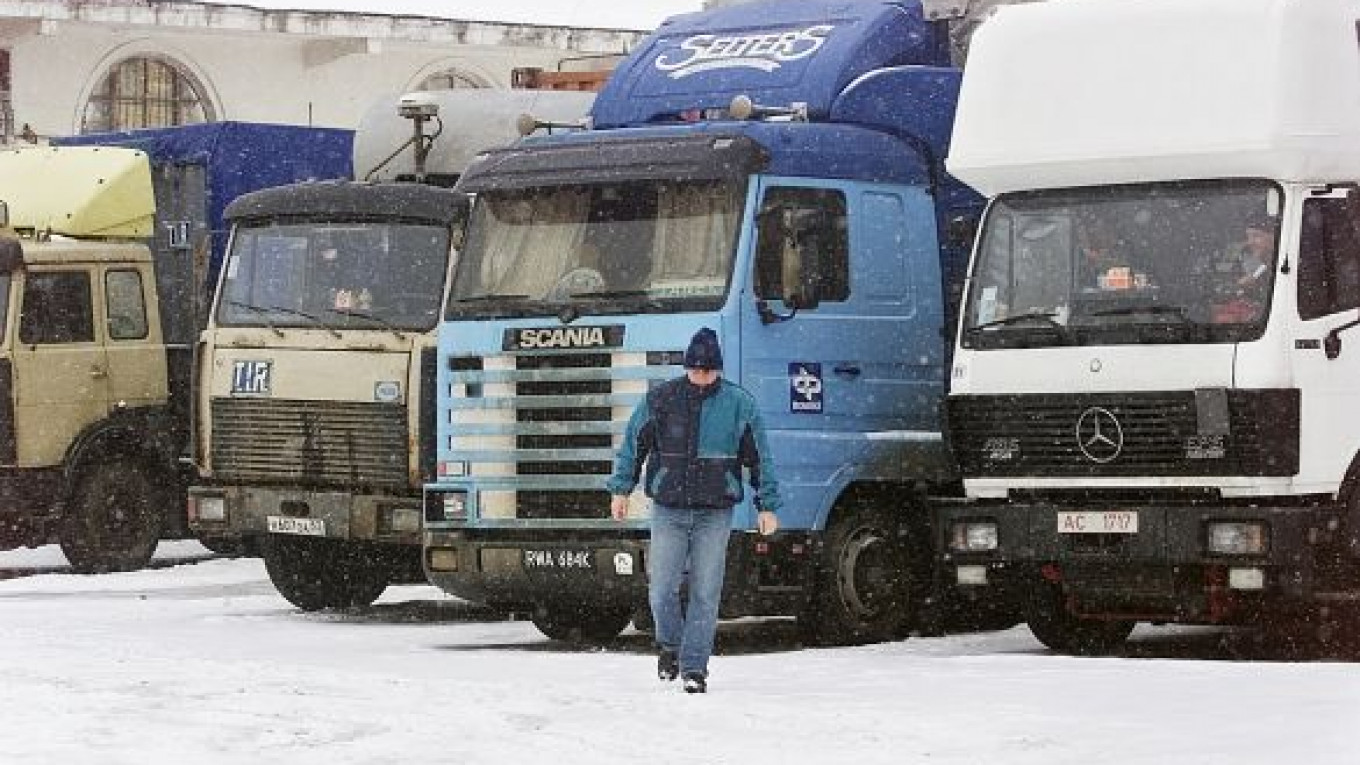Oil firms, knowing better than to challenge Prime Minister Vladimir Putin in a pre-election year, have knuckled under his crusade to restrain pump prices in a move that is likely to stimulate exports.
Putin railed against high gas station prices at a meeting in St. Petersburg earlier this month, and within an hour attendants at major oil producers' retail chains were out on their ladders, knocking the rubles off the price boards.
"We had to dramatically drop diesel and gasoline, but the oil price didn't fall, did it? Demand didn't fall," the head of domestic pricing at one of the top five Russian oil companies told Reuters.
"This kind of meddling is not based on market economics, and it will only result in us wrapping up all the pumps and sending everything to export," she said, referring to the Soviet practice of wrapping the hose around the pump to signal no gasoline was available.
Putin rebuked what he called speculative pricing and demanded more anti-monopoly probes, putting a swift end to months of soaring diesel prices, which hit record highs this month and, unusually, surpassed the price of gasoline.
The verbal intervention also marked the beginning of the traditional, pre-election year of the motorist, when producers seek to pacify the government and drivers by restraining fuel prices and make up for foregone profit by ramping up exports.
"The companies got the signal and have no choice but to agree to the wishes of the leadership. They are going to be very careful working on the domestic market this year," said Denis Borisov, an oil analyst at Bank of Moscow.
Borisov said that in the short term, pressure to keep prices down will prompt producers to send more diesel and gasoline to Europe but that after export duties on products and crude oil are adjusted later this spring, more crude could be exported.
The country is expected to change its oil tax regime in April, which could also tip the scales in favor of more exports. The Energy Ministry is proposing to lower the crude export duty by about 7 percent at the expense of higher oil product duties.
"It's the pre-election year, and during this period the government tries to exert more strict control over prices," said Valery Nesterov, an energy analyst at Troika Dialog. "With prices protected, the pressure will be on exporting more crude oil."
Before Putin's broadside caused companies to slash prices, average domestic winter diesel prices in Russia rose by about 55 percent to 29,000 rubles per ton between September and February.
A delayed ramp-up in production of the key winter fuel led to panic buying by wholesalers to insure against a deficit. Meanwhile, gasoline prices, which typically dip between November and January when fewer cars are on the roads, rose as producers held back the light fuel from the market and stored it to avoid a higher excise tax that took effect on Jan. 1.
Ahead of the 2007-08 election season, government officials and lawmakers extracted voter-friendly agreements from oil producers to restrain prices at the pump.
"In Russia, the only real, actual instrument of dialogue in power and business is fear and force. Until this is applied, speculative monopolists can do what they want," said the head of Russia's long-haul truckers union, Valery Voitko.
Russia's domestic fuel market is not regulated, but the Federal Anti-Monopoly Service, which has already fined Russian majors Rosneft, LUKoil, Gazprom Neft and TNK-BP for breaching competition law, is working on a fixed pricing scheme to prevent future spikes.
"Price formulation is now taking place completely outside market factors, and if Russia can't pay market prices, we'll swing all we can over to export," said the head of products pricing at a state-controlled oil company.
A Message from The Moscow Times:
Dear readers,
We are facing unprecedented challenges. Russia's Prosecutor General's Office has designated The Moscow Times as an "undesirable" organization, criminalizing our work and putting our staff at risk of prosecution. This follows our earlier unjust labeling as a "foreign agent."
These actions are direct attempts to silence independent journalism in Russia. The authorities claim our work "discredits the decisions of the Russian leadership." We see things differently: we strive to provide accurate, unbiased reporting on Russia.
We, the journalists of The Moscow Times, refuse to be silenced. But to continue our work, we need your help.
Your support, no matter how small, makes a world of difference. If you can, please support us monthly starting from just $2. It's quick to set up, and every contribution makes a significant impact.
By supporting The Moscow Times, you're defending open, independent journalism in the face of repression. Thank you for standing with us.
Remind me later.






